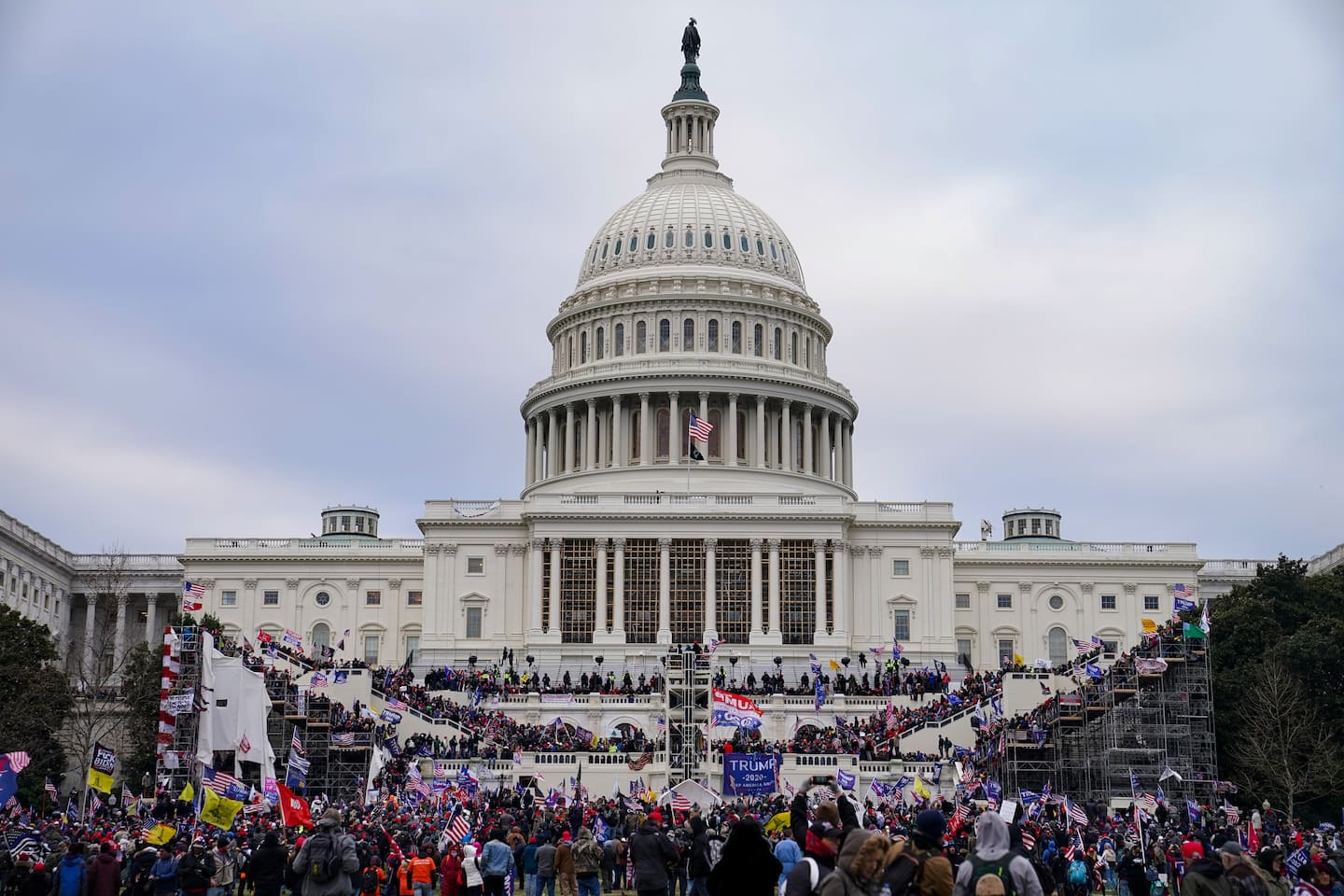Sedition charges for Capitol rioters? The government leans into a historic decision.

“I personally believe the evidence is trending toward that, and probably meets those elements,” Sherwin told Scott Pelley. He added: “I believe the facts do support those charges. And I think that, as we go forward, more facts will support that, Scott.”
Elsewhere in the interview, Sherwin said that about 10 percent of arrests involve “more complex conspiracy cases where we do have evidence — it’s in the public record — where individual militia groups from different facets … did have a plan.”
Sherwin didn’t connect that 10 percent of arrests specifically to the idea of a sedition charge, but if even a small number were charged accordingly, it would represent one of the — if not the — broadest sedition cases in American history.
Sedition law has changed repeatedly throughout American history, with the idea occasionally being used overzealously to target communists, war critics and others whose alleged offenses, in retrospect, seem rather minor.
Here’s how “seditious conspiracy” is defined under federal law (key parts bolded):
If two or more persons in any State or Territory, or in any place subject to the jurisdiction of the United States, conspire to overthrow, put down, or to destroy by force the Government of the United States, or to levy war against them, or to oppose by force the authority thereof, or by force to prevent, hinder, or delay the execution of any law of the United States, or by force to seize, take, or possess any property of the United States contrary to the authority thereof, they shall each be fined under this title or imprisoned not more than twenty years, or both.
People tend to think of sedition as an attempted overthrow of the U.S. government, and some would surely argue that storming the Capitol in an attempt to force Congress to reverse a democratic election would rise to that level. But one can also be charged if they conspire merely to use force to “prevent, hinder, or delay the execution of any law of the United States.” Allegations of an attempted “coup” aside, the Capitol riot seems at the very least like an effort — and a momentarily successful one — to delay Congress’s execution of electoral college law.
Pelley suggested to Sherwin that this was a “low bar.” Sherwin said that he didn’t necessarily agree but that sedition charges could well be forthcoming.
So how rare would it be?
Tracking use of sedition charges in American history is difficult for a few reasons, according to Jenny Carroll at the University of Alabama law school. One is that people accused of it are often charged for apparently lesser crimes that might amount to sedition but aren’t technically recorded as such — such as trespassing or resisting arrest, which are easier to prosecute. Another is that, when state charges are involved, the federal government often lets states handle the cases. And a third is that there is plenty of overlap between sedition, treason and subversion, with the word “sedition” or “seditious” not always used.
It has been more than a decade since the federal government brought sedition charges. The last time was in 2010, against members of a Christian militia in Michigan called Hutaree, who were accused of plotting to rise up against the government. The judge dismissed the charges in 2012, finding that the government failed to prove the group had firm plans to actually launch attacks.
Before that, more than a dozen Puerto Rican nationalists were convicted in the early 1980s of sedition for their role in the Armed Forces of National Liberation (FALN), a group that claimed credit for bombings across the United States. Fourteen of them were granted clemency in 1999 by President Bill Clinton when they agreed to renounce violence. One who declined that offer, Oscar Lopez Rivera, had his sentence commuted in 2017 by outgoing President Barack Obama.
The 1918 Sedition Act made it a crime to interfere with the war effort during World War I and was used to target socialists, pacifists and other antiwar activists. Former Socialist Party presidential candidate Eugene V. Debs was later arrested and convicted of an antiwar speech he had delivered, but he had his sentence commuted in 1921, when the law was repealed by Congress.
Congress in 1940 passed the Alien Registration Act, also known as the “Smith Act,” which made it a crime to advocate the overthrow of the U.S. government. This was later used against socialists, communists and Nazi supporters. The Supreme Court in 1957 overturned the convictions of Communist Party leaders, ruling that those convicted must advocate actual action rather than abstract doctrine. The law has been mostly dormant since then.
The bar for sedition is higher these days, which is a big reason prosecutions have been fewer and with more time in between. And there will always be allegations that it’s being used in a politically motivated way — particularly given how some Republicans such as Sen. Ron Johnson (R-Wis.) have downplayed or attempted to retcon the severity of the Jan. 6 Capitol riot.
But in the case of the Capitol riot, we have evidence not just of a plot to act against the seat of government, but also extensive video footage of it. The big question will be to what degree the planning involved an explicit attempt to either overthrow the government or interfere with its execution of the law — as opposed to, say, merely sending a message and committing other crimes that come up short of sedition.
As Sherwin emphasized, bringing sedition charges isn’t to be undertaken lightly, and if and when they are, it would send a major signal about the severity of the actions of the Capitol rioters.






